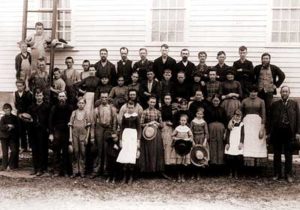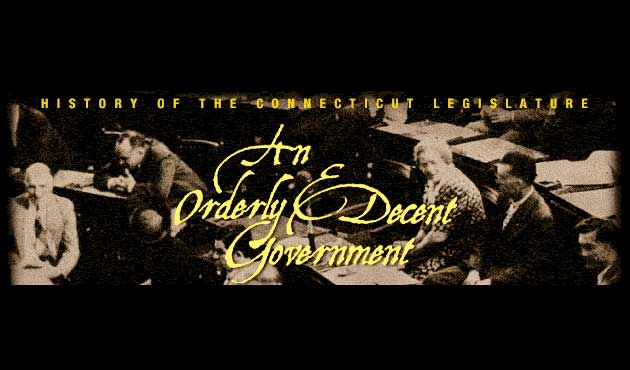In the years following the Civil War, Connecticut’s transformation to an urban, industrial state intensified. Great factories with enormous workforces replaced the multitude of small shops that characterized the state’s early industrial experience. Smoke-shrouded cities grew around these concentrations of industry and drained population from the state’s rural towns.

Textile mill workers
For the rural legislators who dominated the General Assembly, finding the common good in an era of rapid change was a daunting task. Reformers cried out against the social costs of industrialization-child labor, unsafe working conditions, widespread crime and poverty. Businessmen and entrepreneurs urged legislators to allow free enterprise and economic growth to move forward unhindered. Women and African Americans, long excluded from the political process, intensified their demands for equal rights.
The legislature responded cautiously to the challenges of the period. Connecticut’s “Gilded Age” was an era of remarkable economic progress bought at considerable social cost.
This article is a panel reproduction from An Orderly and Decent Government, an exhibition on the history of representative government in Connecticut developed by Connecticut Humanities and put on display in the Capitol concourse of the Legislative Office Building, Hartford, Connecticut.
<< Previous – Home – Next >>









